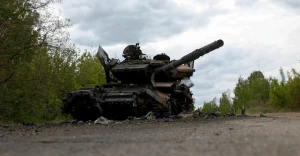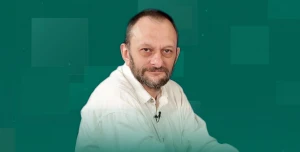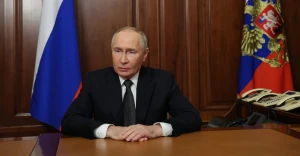
Weapons and security guarantees for Ukraine: details on NATO summit in Vilnius
On the morning of July 12, the second day of the NATO Summit in Vilnius began. One of the key events of the day was the NATO-Ukraine Council, as well as security guarantees and additional weapons
Espreso followed the events of the second day of the summit. Scroll down to read more.
Leaders from various countries and governments met in Vilnius, Lithuania on July 11-12. The summit, hosted by Lithuania for the first time, took place at the LITEXPO Congress Center. The events were secured by thousands of military personnel, and the skies were protected by Patriot and NASAMS air defense systems.
The meetings included leaders from 31 NATO countries, such as US President Joe Biden, as well as delegations from Japan, South Korea, New Zealand, Australia, Ukraine, and Sweden. Around 2,400 members from 48 foreign delegations, including up to 40 heads of state and 150 other high-ranking government officials, were expected to attend.
The official start of the leaders' meeting was on July 11 at around 2 p.m.
On July 12, Stoltenberg held a meeting with the Prime Minister of Japan and led a gathering of NATO leaders with political leaders from the Indo-Pacific region. Another important event on this day was the high-level NATO-Ukraine Council meeting. Prior to the Council's commencement, President of Ukraine Volodymyr Zelenskyy and NATO Secretary General held a press conference.
The three priorities of the talks were new support packages for the Ukrainian army on the battlefield, an invitation to join NATO, and security guarantees for Ukraine on its way to the Alliance.
What was be discussed at the summit in Vilnius
The members of the Alliance discussed the challenges facing their countries at the time and in the future due to Russia's aggression and the issue of terrorism.
During the meetings, topics such as new defense plans for the region, different ways of organizing their forces, and increasing the number of rapid response units to 300,000 military personnel were covered. They also reached an agreement on a plan to address climate change and enhance cooperation with the EU to protect critical infrastructure.
Furthermore, they planned to establish an investment fund for the development of advanced technologies like artificial intelligence, autonomous systems, and quantum technologies.
The summit participants expressed their commitment to increased defense investment. They planned for each member country to spend at least 2% of their national GDP annually to bolster their own defense capabilities.
In addition, the potential accession of Sweden to NATO was discussed during the summit. On July 11, NATO Secretary General Jens Stoltenberg noted that Sweden could soon be welcomed as a full member of the Alliance. Earlier, Turkish President Erdoğan stated that Turkey would support Sweden's NATO membership after Turkey is given an opportunity to join the European Union. Stoltenberg later mentioned that Sweden would assist Turkey in approaching EU membership.
The first day of the summit and Ukraine joining NATO
On July 11, during the NATO summit in Vilnius, decisions were made about Ukraine. The Action Plan on membership has been canceled, and Ukraine will receive an invitation to join the Alliance once it meets the requirements and gets approval from all members.
All the countries in the Alliance agreed on a final statement about Ukraine. They remembered the commitment made in 2008 that Ukraine would become a NATO member. The document also recognized that Ukraine's path to full integration with Europe and NATO has gone beyond the scope of the Membership Action Plan. The member countries emphasized that Ukraine is becoming more closely connected with the Alliance and has made significant progress in implementing reforms. It was also mentioned that NATO foreign ministers will regularly evaluate Ukraine's progress through the Annual National Programme.
Ukraine's Foreign Minister, Dmytro Kuleba, responded to the decision made at the Vilnius NATO Summit after the first day. He believes that the Alliance should not delay Ukraine's entry into the military and political bloc.
The Russian side also commented on the summit. Dmitry Medvedev, the Deputy Head of the Russian Federation's Security Council, expressed concerns about the increasing support given to Ukraine and stated that the possibility of a Third World War is getting closer.
- News













































